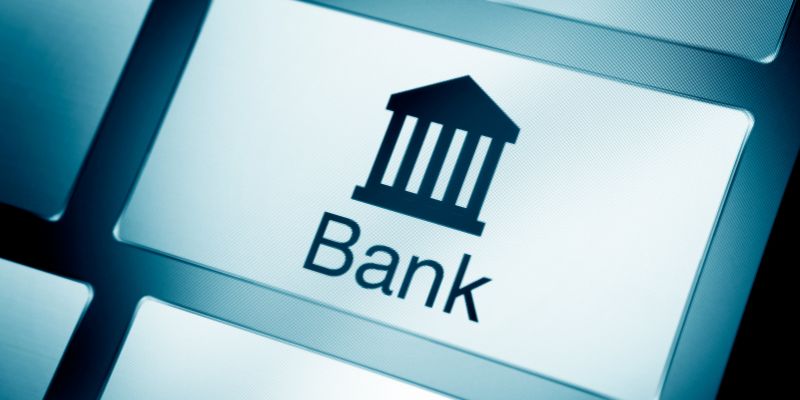Climate First Bank Review 2024
Jan 13, 2024 By Susan Kelly
A community bank with deposit accounts, Climate First Bank, is situated in Florida. The bank was founded in 2021 and provides several checking accounts with no monthly maintenance costs and low-interest savings accounts. It offers a special kind of certificate of deposit in addition to normal certificates of deposit with a typical range of periods.
The bank offers online and national deposit accounts, but only residents of Florida are eligible for its solar and other loans. As its name implies, the bank is dedicated to contributing to the fight against climate change.

Dedication to the Community and the Climate
Climate First Bank has set itself apart by incorporating sustainability into every facet of its business operations. The bank was founded on the values of environmental stewardship. As shown by its branches and headquarters, the bank has strongly committed to becoming carbon neutral. They focus on waste reduction programs, employ energy-efficient equipment, and use renewable energy sources.
This commitment goes beyond the physical location of the bank. Through partnerships with neighborhood environmental organizations and sponsoring initiatives focused on conservation, renewable energy, and sustainable development, Climate First Bank actively promotes green initiatives within its areas. This all-encompassing strategy emphasizes its objective to have a good influence outside the conventional banking sector.
Pros and Cons of Climate First Bank
Here are the pros and cons of Climate First Bank
PROS:
- Some CDs have a good rate.
- There are checking accounts that have no monthly fees.
- Overdraft safety net.
- A big, free network of ATMs across the country.
- Low minimum amounts are needed to open savings accounts and CDs.
CONS:
- Overdraft fee that costs a lot
- Fixed hours for customer support.
- Some CDs and savings accounts have low rates.
- Checking accounts requires a large minimum amount to be opened.
Checking Accounts
Extensive ATM Reach
Climate First Bank offers simple access for its clients with an extensive network of over 41,000 fee-free ATMs thanks to third-party partnerships with MoneyPass and Publix's Presto! Brand. In addition to providing access to this extensive network of ATMs, the Pride Checking account is notable for its inclusiveness. This account makes banking more welcome by letting users use their chosen names and pronouns, especially for transgender and non-binary people. Additionally, the bank goes beyond standard banking services by contributing $100 to a focused organization upon fulfilling certain deposit requirements during the account's opening phase.
Different Types of Checking Accounts
Customers of Climate First Bank have access to three different types of checking accounts, each designed to suit individual needs. One advantage that unites the Regeneration Checking, Pride Checking, and ordinary Checking accounts is that no monthly maintenance costs exist. However, a small monthly fee of $5 is for using printed statements for all these accounts. Each choice needs a minimum $50 deposit to open to ensure that people who want to bank without fees can do so. Although a maintenance charge is associated with the Interest Checking account, special features may make up for this expense for some people looking for particular advantages.
Regeneration Checking
The Regeneration Checking account presents a significant path for those enthusiastic about addressing climate change. This option donates its proceeds to environmental organizations and has characteristics similar to the Pride Checking account, such as a $100 contribution incentive and a similar interest rate. The bank works with Project Regeneration, a charity that shares CEO Ken LaRoe of Climate First Bank's environmental goals.
Using this account, users may direct their banking activity toward projects that align with their dedication to environmental sustainability. By providing financial services with ethical, inclusive, and environmental ideals, Climate First Bank's wide variety of checking alternatives goes beyond traditional banking. These accounts serve a variety of tastes and encourage a sense of accountability and community among their users.
Savings Accounts
Customers may contribute to the bank's environmental activities while safely storing their money with Climate First Bank's savings account option. There are several unique issues associated with this account format, though. The ordinary savings account offers an interest rate substantially lower than the national average for normal savings accounts, currently at 0.46% annual percentage return. This rate is comparable to that of the Pride and Regeneration Checking accounts.
Although this may seem below market rates, the bank makes up for it by offering more options for financial accessibility and charge exemptions. One noteworthy feature of the savings account is the $5 monthly charge, which is refundable if you keep a minimum balance of $200 daily. Customers can avoid the monthly charge by meeting this balance criteria, which lowers the cost of the account for those who can keep the required amount. Furthermore, the account has a low $50 minimum first deposit, guaranteeing accessibility for anyone looking to begin their savings journey.

Certificates Of Deposit
Lower CD Rates
The CD rates of Climate First Bank generally trend lower, but their one-year rate is exceptionally competitive—it can even match the best rates online banks provide. Other times, nevertheless, can have cheaper prices. The bank offers CDs with terms ranging from six months to five years and a low $500 minimum deposit to accommodate a variety of investing inclinations.
Unique CD Type
With more versatility than regular CDs, Climate First presents the Flex CD. It allows for partial withdrawals without penalty (up to half of the initial deposit), additional deposits up to half of the original amount, and prospective rate hikes if newer Flex CDs provide better rates. It was inspired by add-on, no-penalty, and bump-up CDs. A $1,000 minimum starting deposit is needed for the Flex CD.
Conclusion:
As a force for change in banking, Climate First Bank integrates social justice, environmental responsibility, and financial services. The bank enables its clients to match their financial decisions with their beliefs by providing various checking alternatives, inclusive features like Pride Checking, and exclusive services like Regeneration Checking. While the bank's savings account interest rates may not be as competitive as the national average, they make up for it by encouraging sustainability and providing fee exemptions. Furthermore, its creative Flex CD is dedicated to flexibility and expansion within conventional investing instruments.

What Are The Deadlines For Corporate Taxes
Make sure you meet your business's tax dates and stay in line from making payments every three months to filing as a C company
Jan 16, 2024 Susan Kelly

What is Comenity Bank: An In-Depth Exploration of Its Credit Card Offerings
Discover Comenity Bank and explore if its credit cards suit your needs. Uncover perks and features in this guide to make an informed financial decision.
Jan 19, 2024 Susan Kelly

Decoding the Success: How GEICO Car Insurance Lives Up to the Hype
Explore the success factors of GEICO, one of the top car insurance providers in the US, highlighting its customer-centric approach, financial stability, and innovative marketing strategies.
Jan 16, 2024 Triston Martin

Understanding the Mortgage Interest Deduction: A Comprehensive Overview
Unravel the complexities of Mortgage Interest Deduction and its impact on your taxes. Learn eligibility requirements, claim process, and pros and cons.
Jan 11, 2024 Susan Kelly

Decoding SEC Form 13F: Significance, Filing, and Critical Issues
A comprehensive guide to SEC Form 13F, detailing its purpose, limitations, and proposed reforms while highlighting its crucial role in institutional investment transparency.
Jan 08, 2024 Susan Kelly

Road to Sustainability: Gas Cars vs. Hybrid vs. PHEVs
Road to Sustainability: Gas Cars vs. Hybrid vs. PHEVs provides a comprehensive comparison of traditional gas cars, hybrid vehicles, and Plug-in Hybrid Electric Vehicles (PHEVs). The document delves into the functionality of each vehicle type, their impacts on the environment, affordability, and driving experiences
Jan 20, 2024 Triston Martin